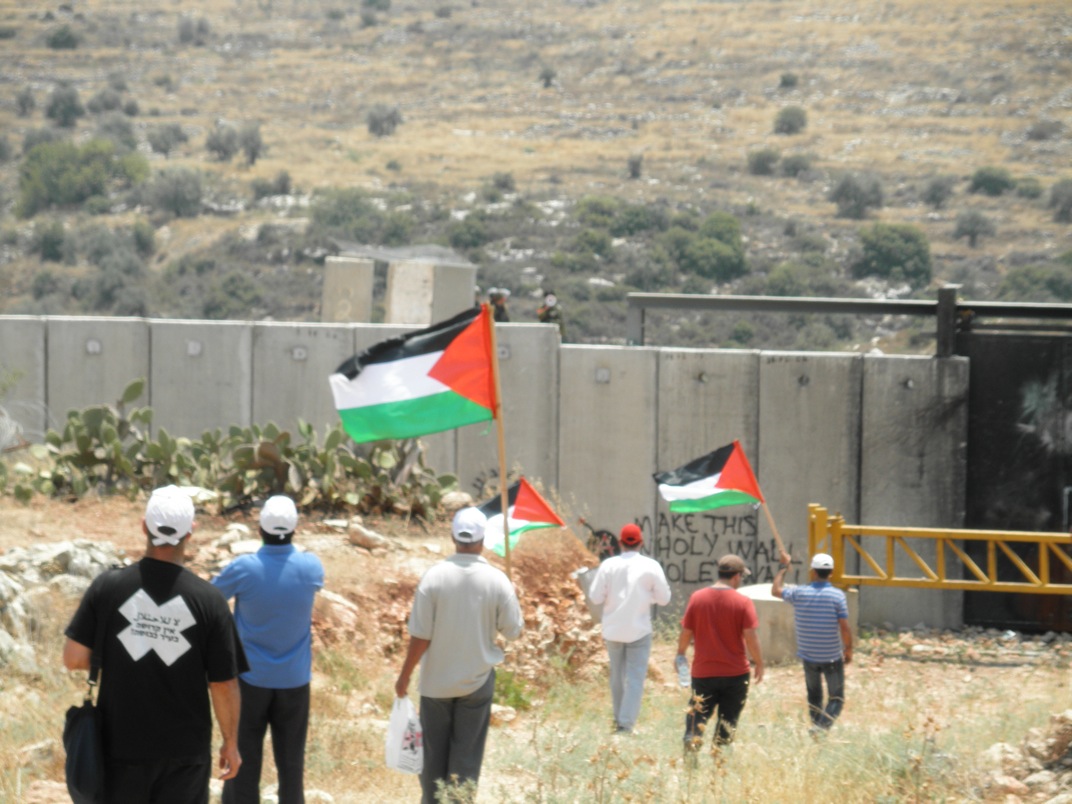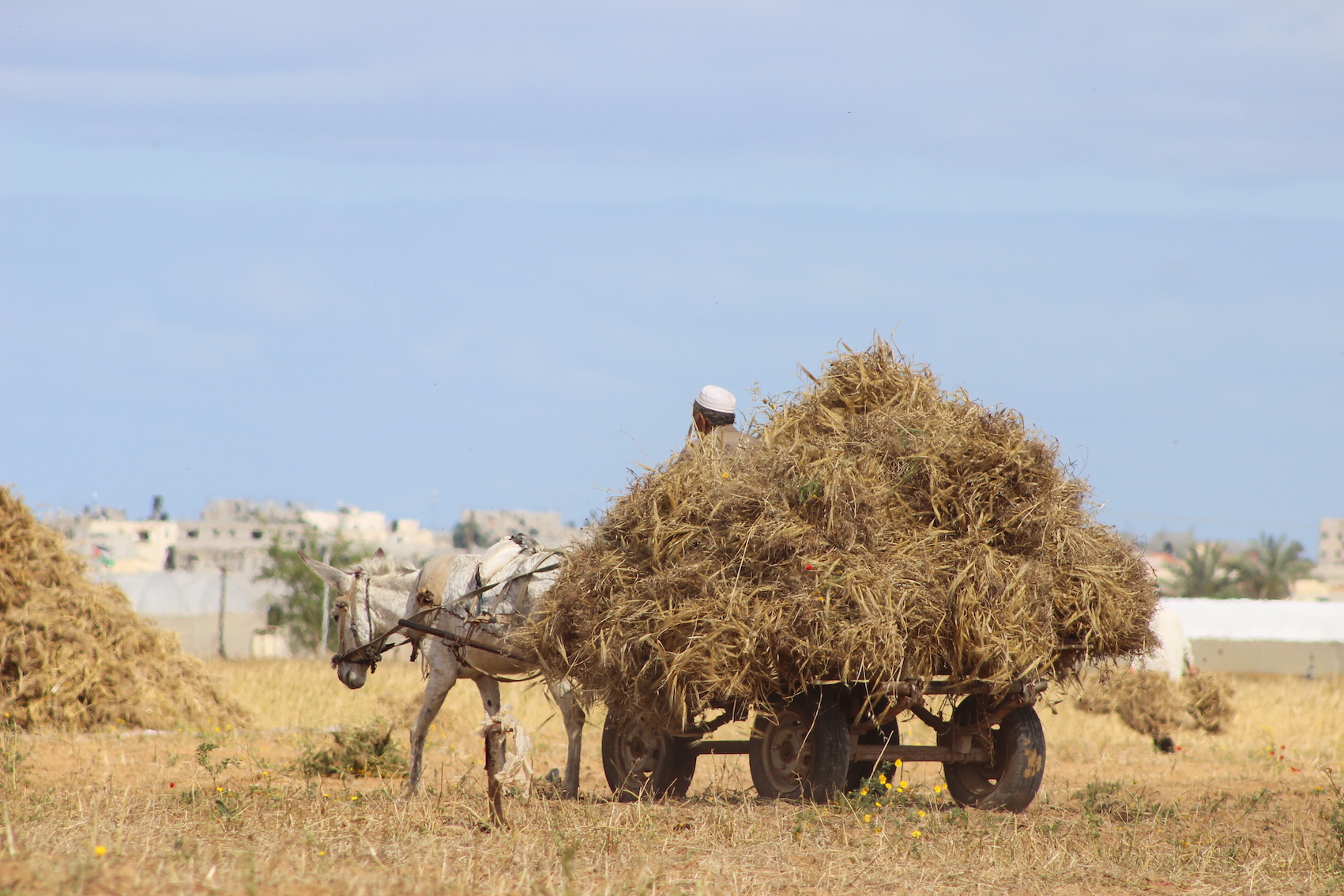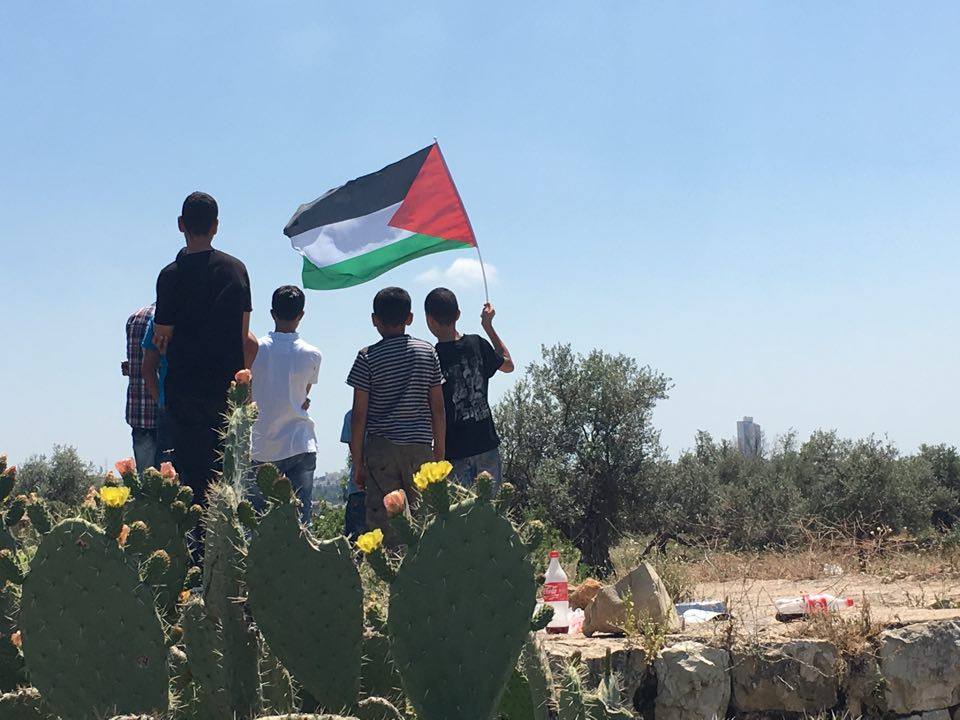Tag: Ethnic Cleansing
-
Violent night raid in Ni’lin leaves 7-days old baby suffering from tear gas inhalation
3rd May 2016 | International Solidarity Movement, al-Khalil Team | Ni’lin, occupied Palestine During nighttime on the 1st of May, Israeli Forces raided the village of Ni’lin in the West Bank in occupied Palestine without any reason. First, with the arrival of one military jeep, villagers were already aguishly awaiting why the Israeli army is…
-
Israeli Forces shoot at family harvesting crops on their land
2nd May 2016 | International Solidarity Movement, Gaza team | Gaza, occupied Palestine After more than six months risking their lives while ploughing, planting seeds and weeding their land, and after investing a large amount of money on seeds and on renting a tractor, the Qudaih family from the village of Khuzaa were finally ready to start harvesting their barley and…
-
Israeli forces attack weekly protests in the West Bank
2nd May 2016 | International Solidarity Movement, al-Khalil team | Deir Istiya, Kafr Qaddum, Ni’lin; occupied Palestine Last week, as every week, Israeli forces attacked demonstrations in the West Bank against the illegal Israeli land-theft, the apartheid-wall and illegal Israeli settlements. In Deir Istiya, near Nablus in northern occupied West Bank, farmers continued their protest…



